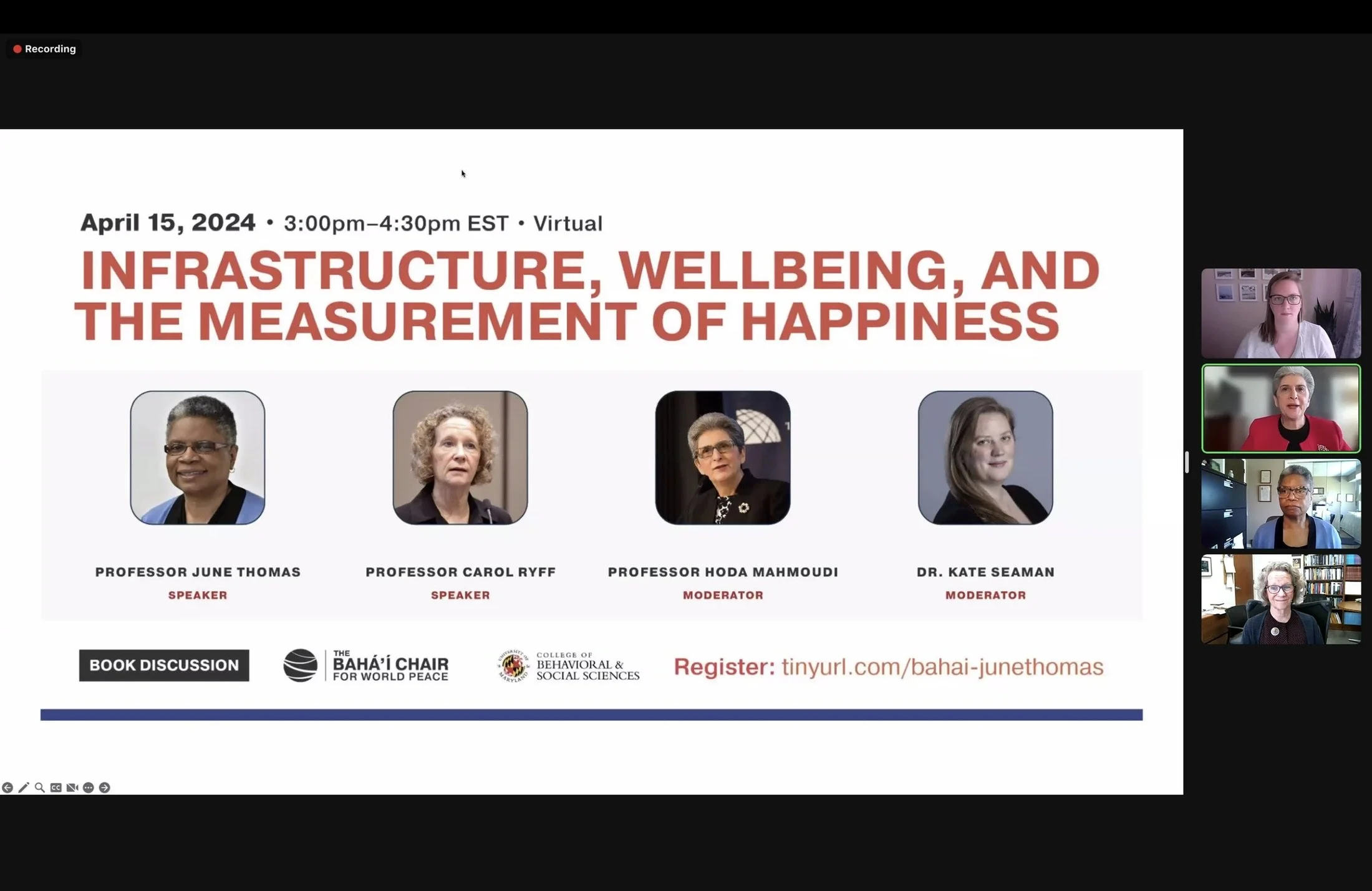Event Reflection: Book Discussion - “Infrastructure, Wellbeing, and the Measurement of Happiness”
On April 15th, the Baha’i Chair for World Peace hosted a virtual event featuring two contributors to the recent volume, “Infrastructure, Wellbeing, and the Measurement of Happiness.” This edited volume takes an interdisciplinary approach to examining infrastructure’s influence on happiness and wellbeing. Professor June Thomas and Professor Carol Ryff partook in meaningful dialogue on the current thinking surrounding how infrastructure design and construction can positively impact people’s wellbeing.
Professor June Thomas looks at urban planning and the bettering of society through a social justice lens finding that a deeply divided society is a major challenge. Working in a deeply divided space leads to urban planners placing certain groups in specific areas which can sometimes be influenced by personal prejudices. Professor Thomas discusses how she works with urban planners who ultimately affect the evolution of human society through the important choices they make when designing infrastructure. She emphasizes the need to address inequalities and create more inclusive plans to correct historical imbalances. She stresses that this is the key to shaping better cities and fostering stronger communities to promote wellbeing.
Professor Carol Ryff started her discussion by focusing on the factors contributing to wellbeing and the concept of happiness. Ryff’s research has found that one’s perception of their neighborhood in terms of safety and other aspects contributes to negative biological risk factors. She finds that nature is especially important in the infrastructure design of a city and that public parks play a huge role in one’s wellbeing pointing to exercise as one example. Another means of receiving nourishment through infrastructure is in museums. Professor Ryff emphasizes that there are many ways for society to flourish through the proper development of urban planning.
This discussion was extremely insightful in looking at the role infrastructure plays in humans’ wellbeing and happiness. The divide within a society, beyond just politics, has played a huge part in creating the inequalities groups of citizens have faced which ultimately affect their overall health and happiness. Professors Thomas and Ryff remind us that it is important to recognize and acknowledge these inequalities to build a safer, stronger, and healthier community.
You can view the video of our book discussion on our youtube channel here.
About the Author:
Zoe is a senior at the University of Maryland studying Marketing. She plans on attending law school after graduation. Zoe is excited to use her creativity with the Bahá'í Chair for World Peace while learning about important social, political, and economic issues.
To learn more about Zoe: www.linkedin.com/in/zhlebovic


